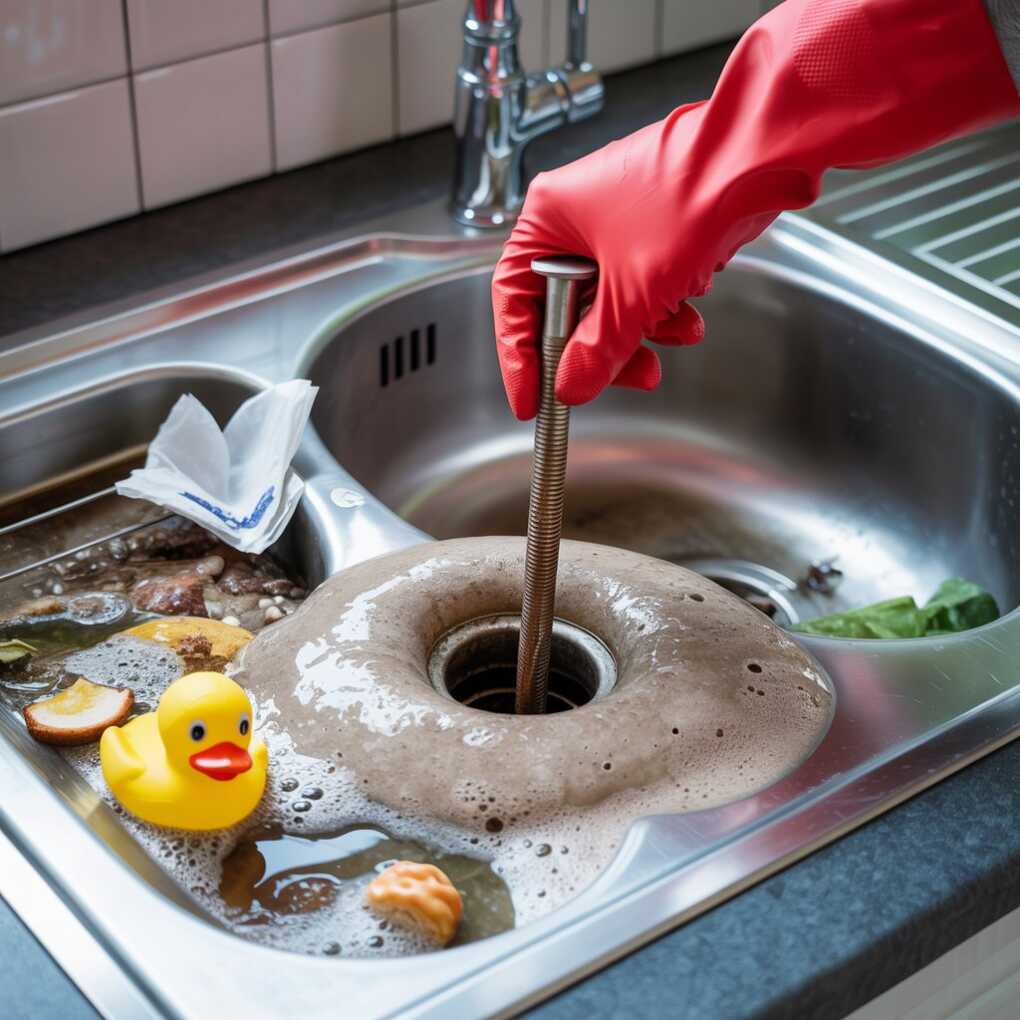A well-functioning drainage system is one of the most essential yet overlooked aspects of maintaining a healthy, comfortable home. While pipes and drains often operate quietly in the background, when something goes wrong, the impact can be disastrous—leading to flooding, foul odours, expensive repairs, and even long-term structural damage. Preventing blockages isn’t just about convenience; it’s about protecting your property and saving yourself from hefty bills.
In this comprehensive guide, we’ll explore the most common causes of drain blockages, share practical tips for prevention, highlight key warning signs, and explain when professional help is the smartest choice.

1. Understanding Common Causes of Drain Blockages
Knowing what typically causes drains to block is the first step to avoiding costly problems.
- Grease, Oils, and Fats: When poured down sinks, these substances cool and solidify in pipes, creating stubborn build-ups.
- Hair and Soap Residue: Bathroom drains are notorious for clogging due to hair tangling with soap scum and forming blockages.
- Foreign Objects: Sanitary products, wipes, cotton buds, and other non-flushables often end up in toilets and wreak havoc in pipework.
- Outdoor Factors: Leaves, soil, and garden debris frequently block external drains, while tree roots can penetrate underground pipes searching for moisture.
Each of these issues builds gradually, meaning prevention and early detection are key.
2. Daily Habits to Prevent Blockages
Changing simple everyday habits can drastically reduce the risk of drain problems.
- Be Mindful in the Kitchen: Avoid pouring oil or grease down the sink. Instead, collect them in a sealed container and dispose of them responsibly. Food waste should go into compost bins or food waste caddies, not drains.
- Install Drain Strainers: A simple mesh strainer in your kitchen sink or shower can catch food particles and hair before they enter pipes.
- Smart Flushing Practices: Only toilet paper and human waste should ever go down the toilet. Wipes, even “flushable” ones, can easily clog pipes.
- Educate the Household: Ensuring everyone in the family understands what not to put down drains can save repeated headaches.
3. Routine Maintenance and Cleaning
Alongside good habits, routine care will help keep your drainage system in peak condition.
- Hot Water Flushes: Running boiling water down the kitchen sink once a week helps dissolve grease and soap deposits.
- Natural Cleaning Solutions: Baking soda followed by vinegar is an eco-friendly way to refresh drains and break down small build-ups.
- Safe Use of Drain Cleaners: Chemical drain cleaners can be harsh on pipes and the environment. Use sparingly and only for stubborn blockages.
- Professional Cleaning: Scheduling periodic professional cleaning keeps pipes clear of hidden blockages and prevents small issues from worsening.
4. Outdoor Drainage Care
Drains outside your home are just as important as those indoors.
- Keep Gutters Clear: Regularly removing leaves and dirt prevents blockages that could cause water to overflow and damage walls.
- Install Drain Guards: Grates or guards over outdoor drains stop larger debris from entering pipes.
- Garden Maintenance: Ensure your landscaping design prevents water pooling around your home, as this can overwhelm drains.
- Tree Root Awareness: Be cautious of trees planted near drainage lines, as roots can infiltrate and damage pipes over time.
5. Signs Your Drains Need Attention
Spotting the early warning signs of drainage issues can save you from costly emergencies.
- Slow Drainage: If sinks, baths, or showers take longer to empty, a blockage may be forming.
- Unpleasant Odours: Bad smells coming from drains are usually caused by trapped waste.
- Gurgling Noises: Strange sounds from pipes often indicate trapped air due to a blockage.
- Recurring Issues: If you keep facing the same problem, there may be a deeper issue requiring professional investigation.
6. Professional Help and Long-Term Protection
While many blockages can be managed with preventive care, some problems require professional expertise.
- When to Call a Plumber: Persistent or severe blockages, foul odours, and multiple affected drains are clear indicators that expert help is needed.
- Annual Inspections: Routine professional checks catch hidden problems early and ensure your drains stay healthy.
- Advanced Solutions: Modern methods such as CCTV drain surveys allow professionals to locate and diagnose blockages with precision. High-pressure jetting can then remove even the toughest obstructions.
For example, if you’re in the South East, working with drainage experts in Dartford ensures you get reliable, cost-effective, and professional solutions tailored to your property. Local specialists are equipped with the right technology and experience to keep your drainage system functioning at its best.
7. The Cost-Saving Benefits of Prevention
It’s tempting to ignore drains until they cause a problem, but prevention is far cheaper than cure.
- Avoid Emergency Call-Outs: Emergency repairs can be costly and stressful, especially if blockages occur at inconvenient times.
- Protect Property Value: Damp, mould, and water damage caused by poor drainage can lower your home’s value.
- Peace of Mind: Regular maintenance ensures your drainage system won’t let you down when you need it most.
By investing in simple maintenance and being proactive about drain health, you’ll save money and avoid unnecessary disruption.
Conclusion
Blocked drains are one of the most common yet preventable household problems. By adopting smart daily habits, performing regular maintenance, caring for outdoor drainage, and recognising the signs of trouble, homeowners can avoid expensive and disruptive issues. And when professional help is needed, partnering with trusted experts ensures lasting solutions.
Remember: prevention is always better than cure. With a little care and attention, you can keep your drains clear, your home safe, and your wallet protected from costly repairs.
